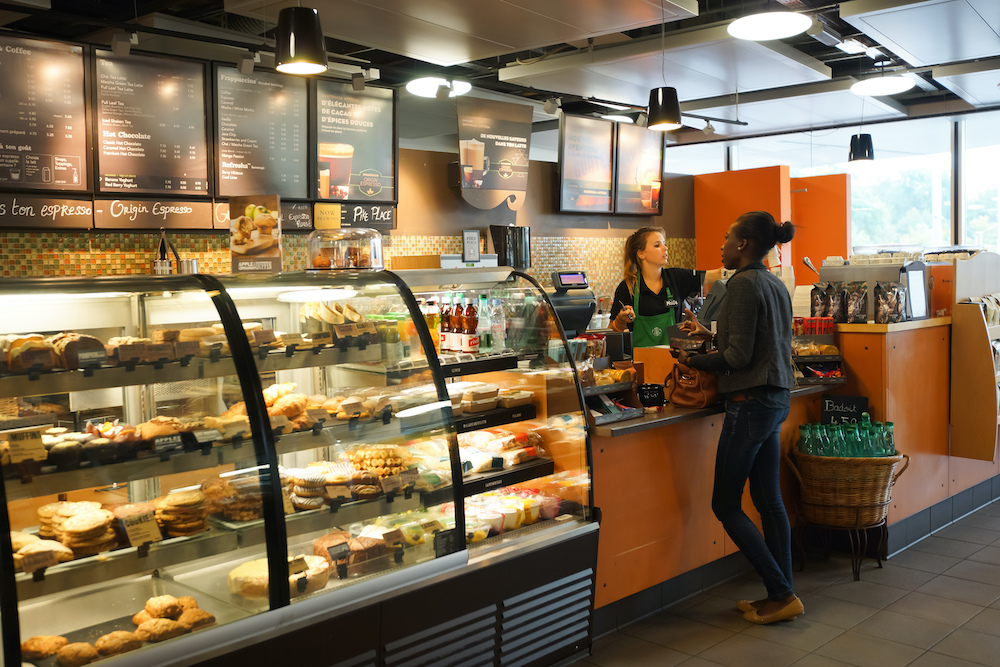
One question that comes up repeatedly when Carl and I talk about buying an established business (versus starting one) is the question of franchise companies.
Namely – should you buy one?
So today, I want to talk about the pros and cons of buying and owning a franchise company.
Franchises are interesting…
If you’re looking for a solid business to produce reliable free cash flow – and you’re not looking for a growing enterprise value (EV), meaning the overall worth of the company isn’t going to get much bigger – franchises can be great.
Especially with a known or established brand, you tend to be buying relatively predictable operations, infrastructural support and cash flow.
However – since most of these types of stores tend to be retail operations, it’s going to be harder for you to scale and diversify if you only own one.
Plus, it’s difficult to know if you’re buying in THE best location – so you want the diversification of multiple locations.
I would only buy a franchise company if I were able to purchase several. A group big enough to support regional management, so I could install a district manager to supervise all the general managers running the day-to-day in the individual locations.
And if you tie your franchise companies to a master franchise license, you can build out a territory. Then take those 10—25 or so stores and sell for a much higher multiple.
That’s how I’d do franchise deal. (Remember – you should always have an exit strategy in mind before you buy.)
But there are downsides to franchises…
First, as I mentioned, you’re not going to unlock a ton of EV. You just won’t see the same type of growth as you would with an independent small business.
One huge negative – especially for the types of deals we do here at Dealmaker Wealth Society – is that most of the time you have to bring cash to these deals.
It’s hard to do a classic no-money-down leveraged buyout like the ones we teach when it comes to franchises.
Then there’s the extra step of dealing with franchisors – which is huge hurdle to getting the deal done.
Franchisors have to approve new franchisees. Plus, they can set other rules you’d have to follow as the owner of the new franchise.
I’d rather not trade one boss for another.
Another big disadvantage to owning a franchise – and I think we’re seeing a lot of this right now – is that it’s harder to pivot to withstand certain market conditions, because you’re not in total control of pricing, offerings, marketing, etc.
You’re limited in what you can do to ensure the business’s survival.
That’s not the case when you’re the owner of a small independent business and you call the shots.
Right now, we’re seeing small-business owners getting really creative, coming up with new ways to keep doing business in accordance with the stay-at-home orders in various places.
Some businesses are pivoting to new products, like distilleries now making hand sanitizer. Others are figuring out new ways to keep meeting the needs of their customers.
There’s a local restaurant near me, Kooper’s, that is serving takeaway meals (and beer!) out of their food truck parked in front of the restaurant.
And while the restaurant itself is empty, the owners are taking the time to do some improvements they can only do while closed (like installing a new floor).
There are a ton of folks who live within walking distance (myself included) who are only too happy to get out of the house, stretch their legs and pick up a meal they DON’T have to cook.
(As it is – I might go grab dinner from them tonight.)
If Kooper’s were a franchise, on the other hand, the owners might not have the liberty to pivot to stay open.
So there’s a lot to consider when it comes to buying a franchise company…
There are some big limitations, for sure. But there is also a huge opportunity for upside if you can carve out a territory and sell for a huge multiple.
If I found the right deal – and if I could buy enough stores to put the regional infrastructure in place – I would be open to buying a franchise company.
Only time will tell…
You’re only one deal away,

Adam Markley
Co-founder and publisher, Dealmaker Wealth Society
P.S. Regardless of the type of business you want to buy, you have to know how to find the best deals. In his seven-day Dealmaker Launchpad training course, Carl lays down the groundwork to get you in the dealmaking mindset. So if you want to start your business-buying journey – but are not sure where to begin – sign up for Dealmaker Launchpad and start finding opportunities as soon as next week.